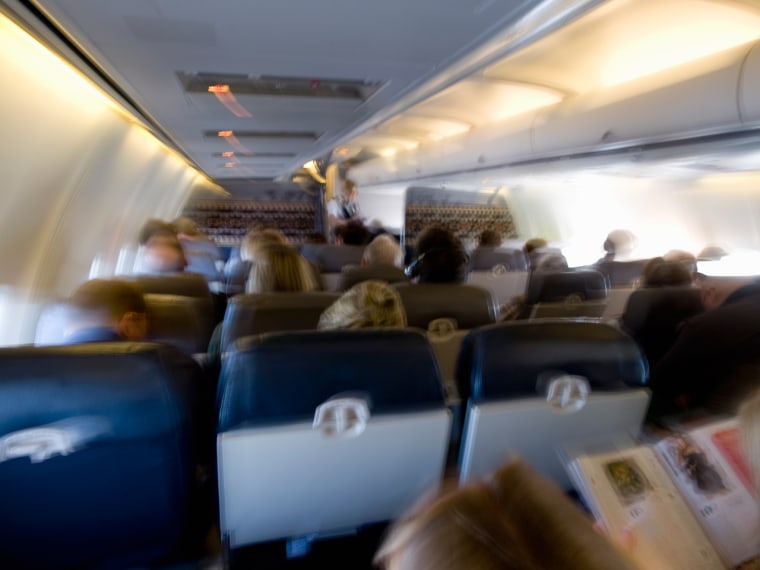By Laura Beil, Women's Health
Sinuses and Stomach
The plane's filtered, ultra-low-humidity air can dry out your airways, stripping your nostrils of their protective mucous layer. Without that barrier, germs may have an easier time infecting your body's cells. Your best defenses are keeping your fingers out of your eyes and nose, and washing your hands often. (Another smart move? Eating antioxidant-packed foods when you travel. Opt for one of The Healthiest Airport Lunches.)
Have to use the lavatory? So would someone suffering from norovirus, a powerful and super-contagious cause of diarrhea and vomiting. It can live on bathroom faucets and door handles--and even tray tables. Swabbing yours down with an alcohol-based wipe can help; so can using hand sanitizer after touching anything communal.
Blood
The cabin's low air pressure and your own inactivity can be an ugly one-two punch that slows blood circulation, cracking open the door for deep vein thrombosis, when blood coagulates to clog your veins. Women on the Pill or with a family history of blood clots should take care to stretch or walk around for about five minutes every hour or so.
Ears
You may feel motion sickness in your belly, but it starts in your inner ears. Those balance hubs can be thrown off by turbulence or whenever what you see (a stable cabin) doesn't match what you feel (in-flight motion). Your best prevention: Book a seat over the wings, the steadiest part of the plane. (You can also try acupressure wristbands. They made our list of the 10 Best Travel Accessories for a Healthy Vacation.)
Adding insult to injury, those tunes you're blasting to block engine noise are wreaking havoc on your ears' nerve cells--even if you're playing Mozart. Your hearing won't take a long-term hit after a plane ride or two, but if you're a frequent flier, you could be setting yourself up for permanent damage. (Always listen to blaring music? If you do it when you work out, it can damage more than your ears. Learn more about The Surprising Dangers of Earbuds.)
Cells
The earth's atmosphere thins out above 30,000 feet, meaning fliers are exposed to higher levels of cosmic radiation. (A typical cross-country flight, for instance, will give you about half the radiation you'd get from a chest X-ray. Three New York to L.A. round trips in one month? Close to three chest X-rays.) While radiation might prompt cellular changes, this kind of exposure may only be a concern for flight crew--especially pregnant flight crew--and mileage chasers.
Sleep
If you cross time zones quickly, you leave your circadian rhythms back home. The result: jet lag. Sunlight is key in helping your brain and body adjust. If you travel east, avoid morning light but catch some rays in the afternoon; if you travel west, get as much light exposure as you can right before sunset.
Sources: Phyllis Kozarsky, M.D., Travelers Health Branch, U.S. Centers for Disease Control and Prevention; Steven Lockley, Ph.D., Harvard Medical School, Division of Sleep Medicine; Mary Cushman, M.D., director, Thrombosis and Hemostasis Program, University of Vermont College of Medicine
More from Women's Health:
